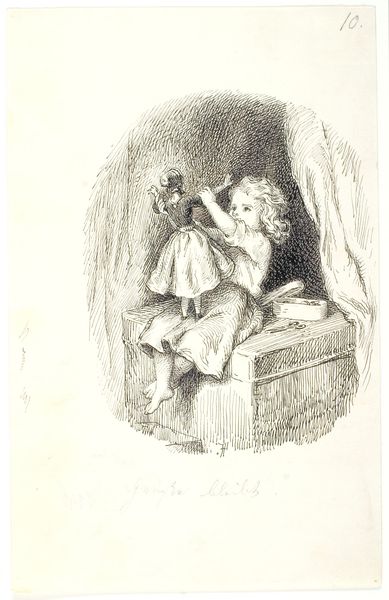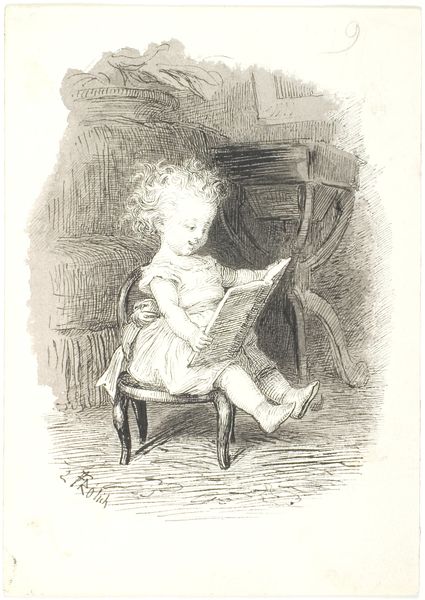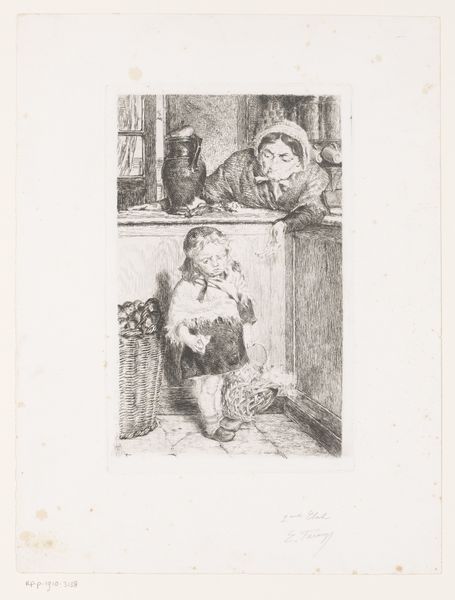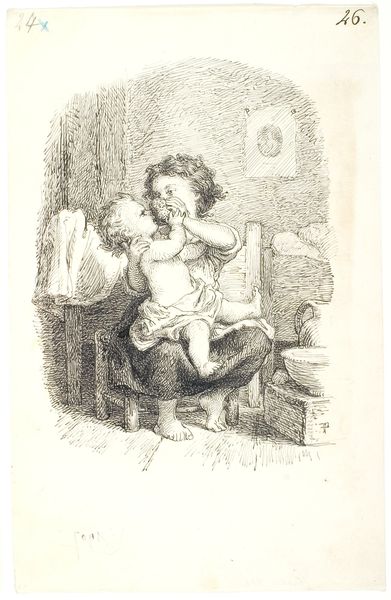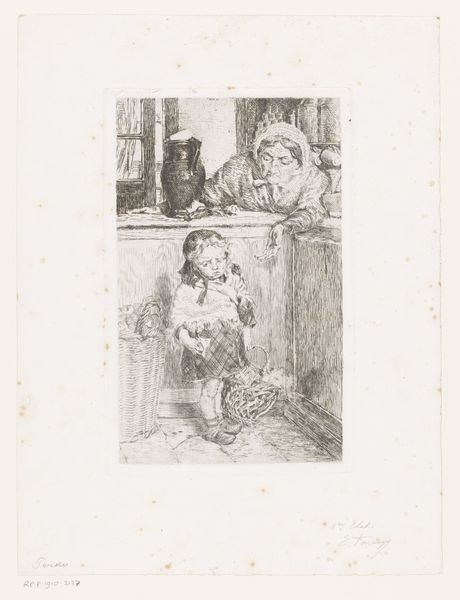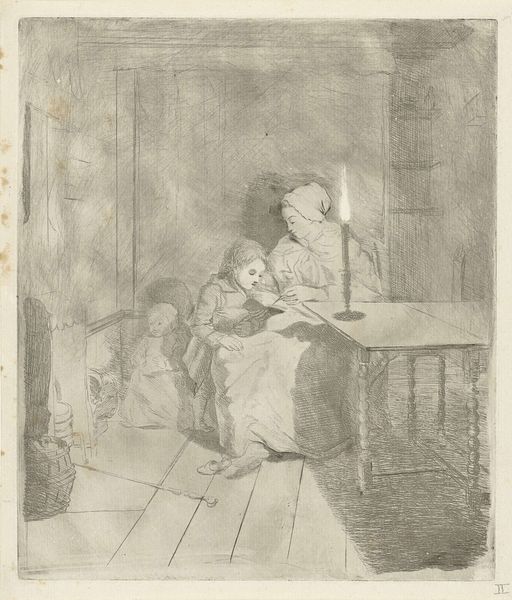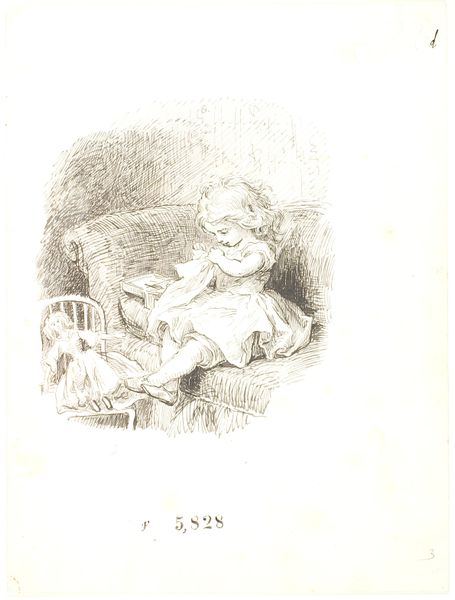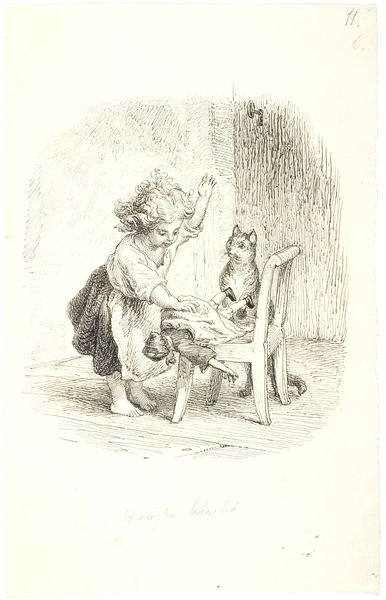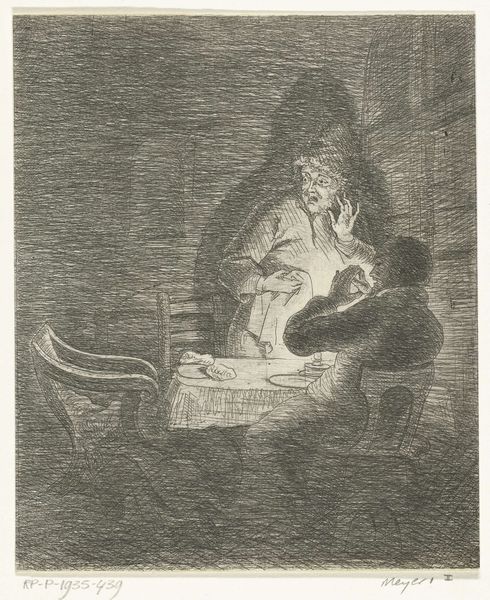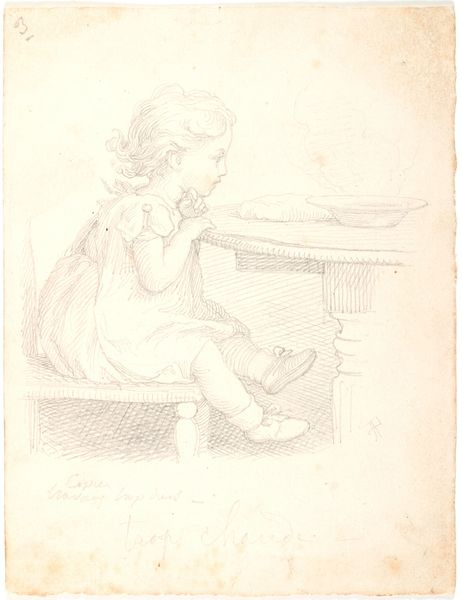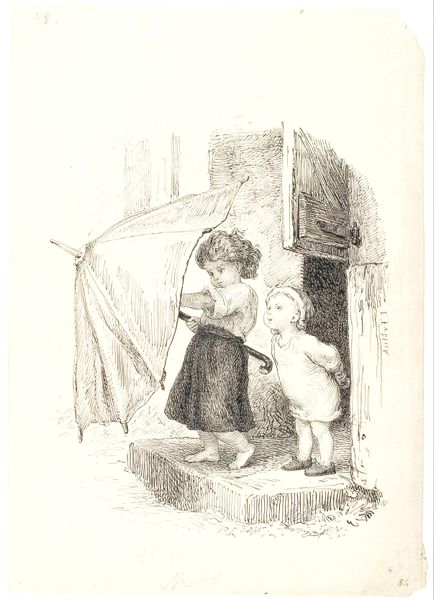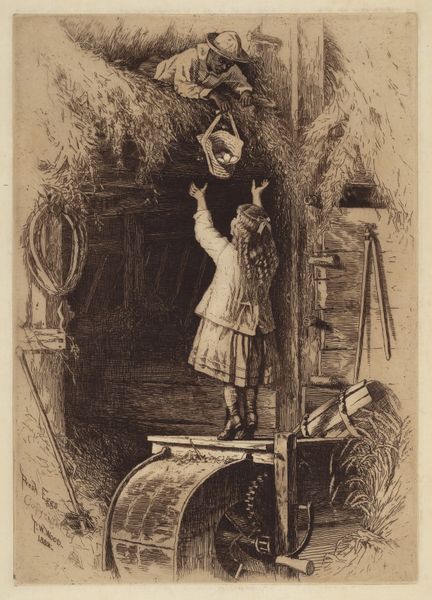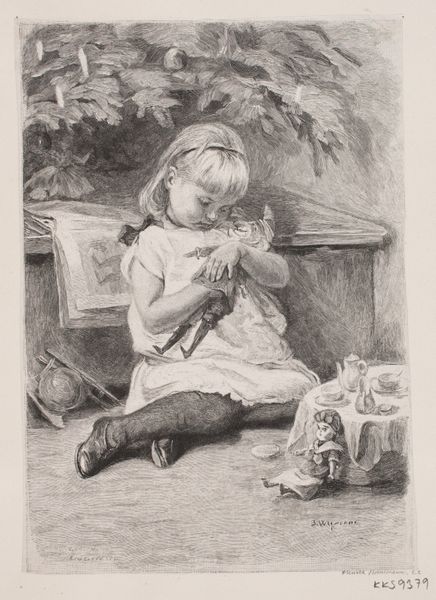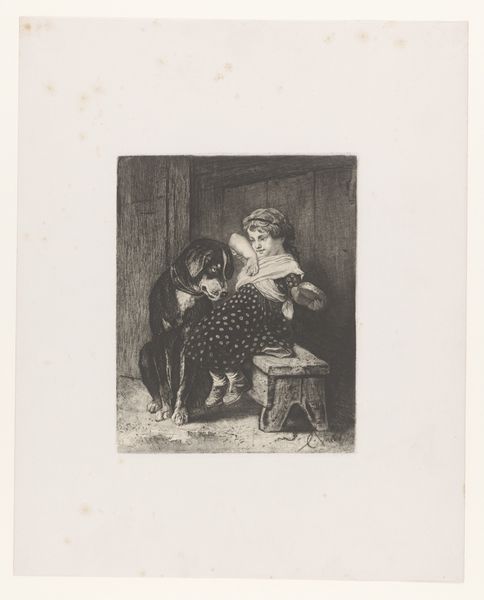
drawing
#
portrait
#
drawing
#
genre-painting
Dimensions: 209 mm (height) x 133 mm (width) (bladmaal)
Curator: Here we have "Lille pige giver sin dukke medicin," or "Little Girl Giving Her Doll Medicine" by Lorenz Frølich, made sometime between 1864 and 1877. It’s a genre scene rendered as a drawing. Editor: Isn't it sweet? The doll seems almost life-sized. It makes me think of that stage when kids project so much of themselves onto their toys. Curator: Yes, the image vibrates with echoes of human concern. Consider how dolls traditionally have acted as transitional objects, surrogates of care, embodying comfort during periods of anxiety and serving as training grounds for compassion. The scene taps into our innate predisposition to nurture, irrespective of scale. Editor: It's more than just that. The girl’s giving the doll medicine – so there's sickness implied. And kids mirror what they observe – does that tell us something about domestic care in the artist's era, do you think? Were they super focused on children’s health? Curator: Illness in childhood would certainly have had greater significance in that period. This artwork, with its depiction of mimetic healing, speaks to the powerful drive in human nature to mend what is broken and reflects cultural practices of healthcare at that moment in time. Look how serious she is; it underscores how impressionable childhood is and the significance adults play in influencing emotions. Editor: True. And yet, it also suggests kids possess a kind of natural empathy—they don't wait to be taught, they just see another's need and want to respond. And I love how the artist shows such tenderness for that childlike virtue. It reminds me to trust that instinct in myself. Curator: An instructive parallel, indeed. As an image and artifact, it mirrors back universal inclinations of care that bridge divides.
Comments
No comments
Be the first to comment and join the conversation on the ultimate creative platform.
